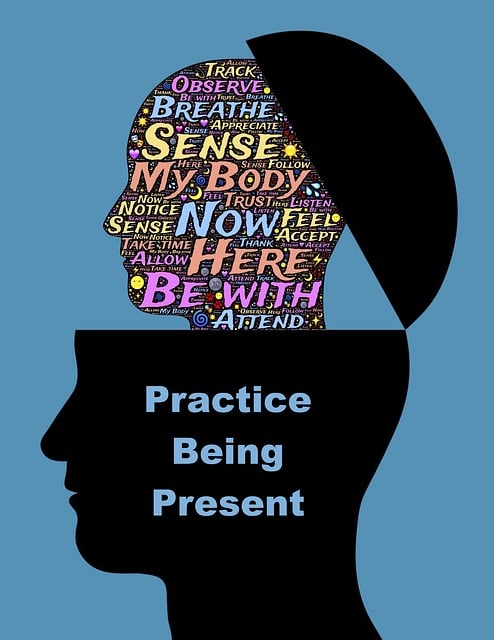Challenges Life Throws
Sometimes life can throw us a curveball. Events occur in our lives that disrupt our established patterns. These can be unhappy events, but they don’t always have to be harmful or traumatic to be unsettling. Sometimes great opportunities can turn up in our lives, which can also be disruptive.
My husband went to law school and practiced as a solicitor for ten years. He was Chairman of the Board of Governors of a new primary school.
His founding principles included a traditional academic curriculum, a rich cultural element that included singing Mozart and performing Shakespeare, and a deep commitment to philosophical inquiry and spiritual practice.
The school had only been in operation for a few years and had an enrollment of thirty-five children. It was operating out of a small suburban house, the garage had been converted into one of its classrooms.
Table of Contents

At the time, the board and the headmistress felt that if the school was to succeed, it needed someone to take it on and build it up into a well-established educational institution.
My husband was involved in these discussions, and several names were raised as candidates. Then, to my husband’s surprise, he was offered the position.
He and I discussed the offer and all the practical details and issues, including our own financial circumstances and family life. And then, we decided that this was one of those hinge moments in life.
We either had to take a courageous step into the dark or stay on an established and predictable path.
He took the job. He and I and a superb team of teachers, office staff, and parents worked together wholeheartedly in the school for nearly thirty years, establishing it as one of Australia's outstanding academic primary schools.
You can find the Kshamā spiritual jewelry collection on the Damayanti.store to remind you to stay patient.
Patience, Peace, Gratitude = Kshama
What can we take away from this story apart from patience, peace, and gratitude? When events come our way that upset the apple cart, a fruitful way of dealing with them is to take stock of where we are on the spiritual path in our lives.
We can examine the things we hold dear full-hearted, the things we take for granted, and things we have grown comfortable with, sometimes without even knowing it.
This comfort zone is aptly named because when we are forced out of it the first feeling is one of discomfort. Change will do that; in fact, one of the hallmarks of genuine change is the feeling of uneasiness and discomposure, losing your inner peace.
Having taken stock, the next step is to find out what the men and women of wisdom have to say. What advice can we glean from the wisdom traditions? In challenging times, the wise's guidance is especially valuable.

By definition, the wise are insightful, knowledgeable, and clued into the realities of life. That’s why we call them wise. And that is why it is intelligent to turn to them for answers.
As an aside, it is curious that even those of us who have dedicated significant time and effort to studying the words of the wise and putting their teachings into practice seek their wisdom only when we have space, time, and leisure.
But we often fail to do so when the need is urgent, the situation pressing, and the time short. In fact, one of the reasons I recommend that you engage in spiritual and meditative practices when you have the time and space to do so is so they will come to your mind when the pressure is on.
We consult the wise to discover what approach they would recommend when life throws up a challenge that jolts us out of our comfort zone. When, say, a lawyer with his own established practice is asked to take on the responsibility for a new primary school, you have to apply intelligence.
What do the wise have to say that can be helpful in times of change and challenge?
What virtues and values can we turn to and cultivate to help us?
Many such virtues are extolled in the wisdom of Sanskrit: abhayam (अभयम्) fearlessness; balam (बलम्) strength; buddhi (बुद्धि) reason, kshamā (क्षमा) patience and forbearance.
All of these – fearlessness, strength, reason, and patience - would greatly help when the pressure is on. They, indeed, were to my husband and me.
But when I reflected on these words of wisdom, it was kshamā – patience and forbearance – that ‘spoke’ to me and that I felt would be the most useful to explore.
After all, what could be more helpful when life takes a sudden turn than patience and forbearance?
In its ordinary meaning, kshamā means ‘patience’ - the ability to wait upon events without judgment or criticism, without demanding that the universe serve up a different reality to us.
This requires an inner steadiness, an ability to find rest, satisfaction, and fullness within ourselves, and a certain consciously developed confidence.
This beautiful word - kshamā - is full of deep, practical wisdom. It is derived from a root form related to remaining calm and composed. It carries the sense of allowing events to take place, of not resisting the reality of the moment.
After all, Byron Katie, author of Loving What Is; Four Questions That Can Change Your Life, said, “When you argue with reality you lose, but only 100% of the time.”
The root form of kshamā also means fortitude, the strength to bear any burden.

A Zen Story Illustrates the Ordinary Meaning of Kshamā – Patience and Fortitude
Hakuin, a Zen master much respected for his teaching, was falsely accused by one of the village girls of being the father of her child. All the villagers now reviled him, and his reputation plummeted. When this accusation was leveled at him his only response was to say: “Is that so?”
After the child was born it was left on his doorstep, and Hakuin again said: “Is that so?” and took the baby in. He made sure it was fed and well cared for.
After a while, the young mother could no longer bear the situation, and she confessed that the real father was one of the village's young men. When all the villagers converged on Hakuin’s hut to apologize, and the baby was returned to his actual parents, all Hakuin said was: “Is that so?”
We may not have the same response as Hakuin, but that is not the point of the story. What Hakuin demonstrated was patience which involves not fighting reality.
Many people wear kshamā jewelry to remind them constantly of Patience, Peace and Gratitude.
You can find a collection of Kshamā jewelry on the Damayanti.store site.
Following Hakuin’s example may seem at first to be complicated. We may think we are being asked to be passive and docile in the face of life’s ups and downs. This is not so. The approach is a practical way of stripping away our negative hasty reactions to events to allow more considered and effective action to take place. And it is easier than we may think.
One simple way to discover the beauty and power of kshamā for ourselves is to change our story about the events that come our way. We go from judgment, criticism, and requirement to gratitude, acceptance, and calmness.
Again, this acceptance is not a passive, inert condition but a starting point from which we can see the situation clearly. This way, we have the space and time to apply our natural intelligence and reason and respond fully, effectively, and fruitfully.
This feeling of gratitude and acceptance can be cultivated and practiced. We can start by realizing the universe is a great giver of gifts and that anything presented to us is for our benefit.
The offer to head up a new and growing school was an incredible opportunity for my husband and me, and we knew it at the time, although we had no idea where it would lead and what challenges we would face along the way. We were under no illusions that it would always be plain sailing, but we grasped the opportunity gratefully.
Listen to Sarah Mane Talk About Practical Wisdom On Facebook Live
Practical Wisdom: Cultivating Gratitude
Sometimes, if a situation is incredibly challenging, cultivating gratitude requires effort. Affirmations can be helpful here. They give the mind strength, focus, and discipline.
A few examples of helpful affirmations are:
-
I can meet whatever life presents with courage and gratitude;
-
I deal with challenges happily and easily;
-
I am never presented with anything I can’t handle.
Some of these affirmations may sound unrealistic or naïve. Try them anyway, give them some emotional backing. What have you got to lose? And, you never know, something in your heart may be listening.
Focus On The Positive Feelings
Another simple technique is to ask questions that focus your energies on the positive aspect of the situation.
Perhaps you might ask yourself:
-
What can I learn from this situation?
-
What is here that will make me stronger, that will help me grow?
-
What inner resources do I possess, courage, strength, and intelligence that will help me meet this face on?
Courageous questions such as these can give us space, strength, patience, and fortitude to meet life and turn whatever it presents to good effect.
The Lesson
So, let’s work together to meet the challenges life throws at us - the fear, insecurity, distress, and grief - head-on by cultivating kshamā.
Let’s feed those positive feelings of gratitude, patience, and fortitude.
This will leave us free of some of our own burdens, so we can be ready and willing to face what life presents and also to give our love, our compassion, and our support to the many friends, family, and even strangers who are also in need of some strength and comfort.
Or even better, give them a Kshamā jewelry piece to remind them of the power of patience and they'll think of you every time they look at it.
You can learn more about our Spiritual Jewelry For Your Soul On the Damayanti.store blog or follow the links below.
Spiritual Jewelry Brands for Strength, Confidence, and Inner Peace
What Is Meditation Jewelry and How Does It Differ From Yoga Jewelry?





